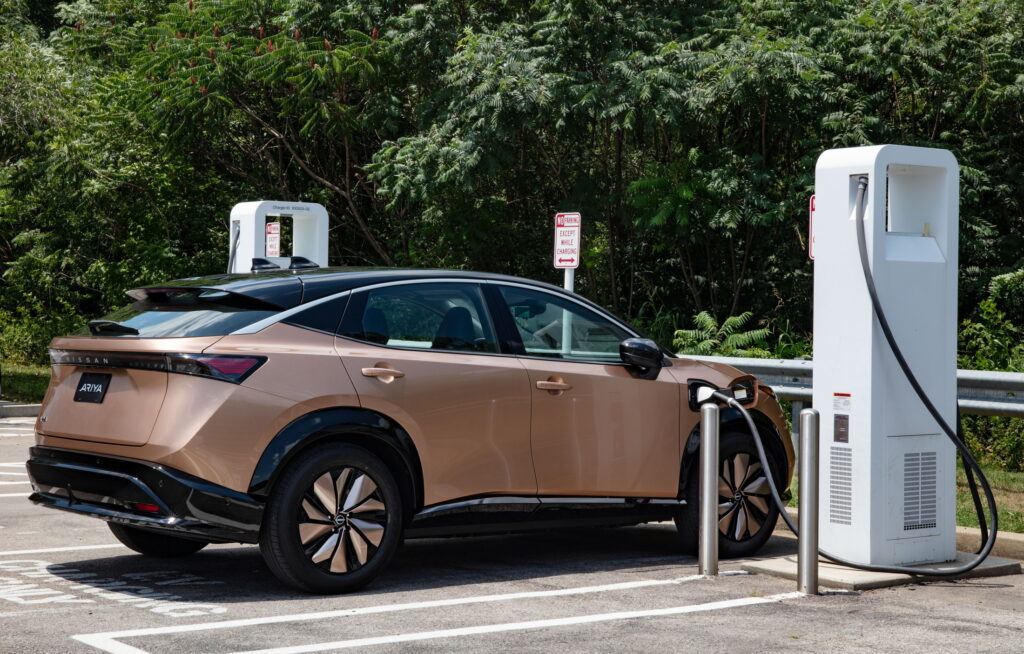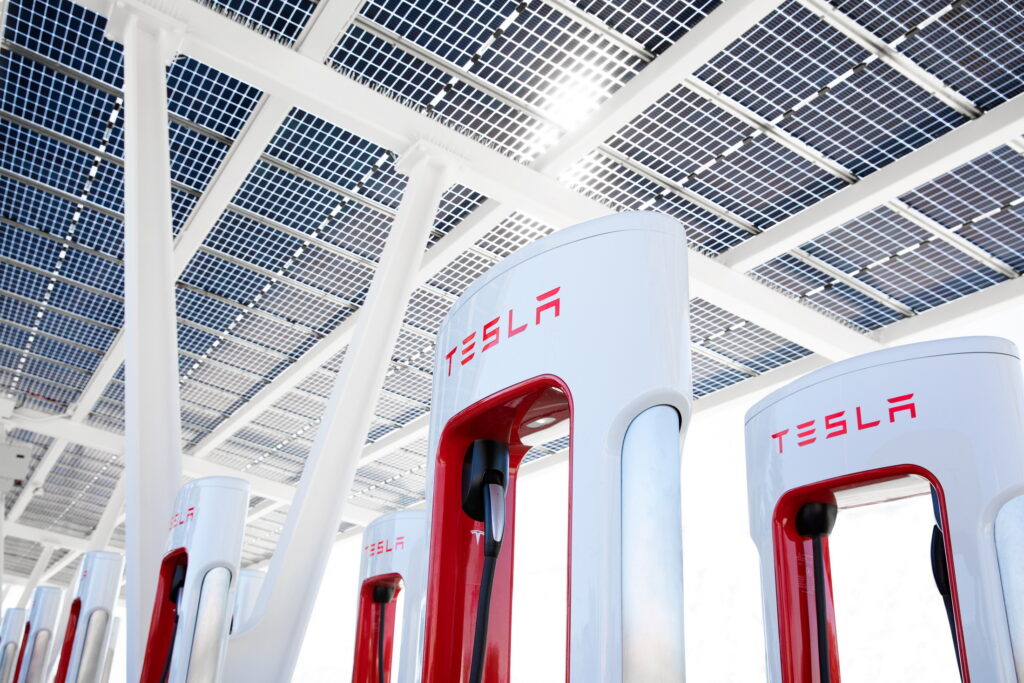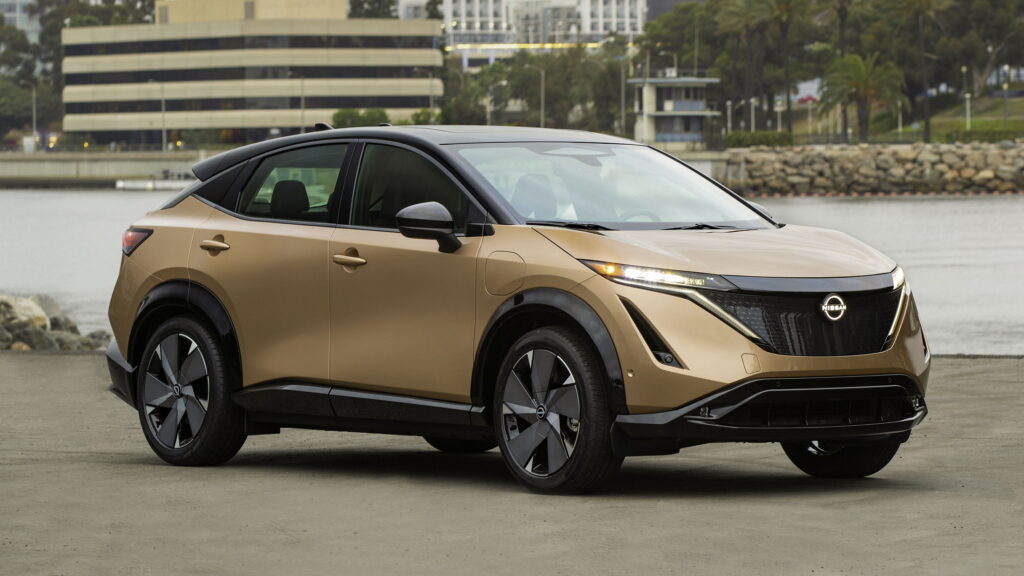Nissan has joined the growing ranks of automakers that have announced they will adopt the North American Charging Standard plug in the U.S. and Canada. As of 2025, the automaker’s electric vehicles will come equipped with the Tesla-style plug.
Until then, Nissan’s vehicles will continue to use the Combined Charging System 1 (CCS1) plug, which is the default plug in other parts of the world. By 2024, it says it will offer drivers of its vehicles an NACS adapter that will allow them to use Tesla’s Supercharger network of charging stations, among others.
“Adopting the NACS standard underlines Nissan’s commitment to making electric mobility even more accessible as we follow our Ambition 2030 long-term vision of greater electrification,” said Jérémie Papin, chairperson, Nissan Americas. “We are happy to provide access to thousands more fast chargers for Nissan EV drivers, adding confidence and convenience when planning long-distance journeys.”
Read: This Is Why Everyone Is Adopting Tesla’s Supercharging Network

Nissan says that this will significantly increase the number of charging stations its vehicles can use. Indeed, Tesla’s Supercharger network is the largest network in North America. The American EV manufacturer also offers a CCS adapter, and a number of third-party charging providers have announced that they will add NACS plugs at their stations.
Starting in June, a wave of automakers announced that they would adopt the plug style in North America. Brands that are a part of this trend include Ford, GM, Rivian, Volvo, Polestar, and Mercedes, while Stellantis, Hyundai, and VW have indicated that they are considering making the switch.
Companies That Have Adopted Tesla’s NACS Charging Plug
Tesla’s Supercharger network has proven to be much more reliable than other companies’, with miniscule downtime and simple operation. So far, it has had the benefit of only needing to be compatible with one automaker’s vehicles and software, an advantage it will quickly lose in 2025.
As EV adoption rises in America, creating a reliable, high-quality charging network has become an important focus for automakers and governments, which are investing in establishing the technology.





